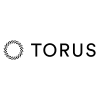Dive Brief:
- With Michigan’s 10% renewables mandate by 2015 expiring next year, twelve Democrats and five Republicans are co-sponsoring a four-bill package called “Energy Freedom” designed to confront net metering (HB 5673), microgrids (HB 5675), fair-value pricing for electricity (HB 5676), and community renewable-energy gardens (HB 5674) and win cooperation from DTE Energy and Consumers Energy by addressing their concerns about costs and cost-shifts.
- Renewables advocates want policies that streamline distributed generation growth while Consumers Energy is calling for “cost effective renewable energy” and expressing concern about customers subsidizing net metering for renewables owners.
- Legislators worked with experts on the bill package for a year but it went to the House Committee on Energy and Technology after being introduced in June and is expected to remain there until after the November gubernatorial election.
Dive Insight:
For net metering, HB 5673 would eliminate (1) the current law's limit on system size and (2) a utility's ability to opt out if the net metered capacity exceeds 1% of the previous year's in-state peak load.
For fair-value pricing, HB 5676 would introduce rates designed on MISO wholesale market hourly electricity prices so that residential customers and businesses, like utilities, would pay time-of-day and time-of-year prices and be motivated to take advantage of off-peak lower prices.
For community renewable energy gardens, HB 5674 draws from Colorado and Minnesota policies to allow people who own shares of a 2 megawatt or smaller community project to get paid as a credit on their electric bills instead of as taxable income.
For microgrids, HB 5675 mandates a study of microgrids by the Michigan Public Service Commission and permits a utility or large commercial or industrial facility whose interests require high reliability to establish “a group of interconnected loads and distributed energy resources…”













